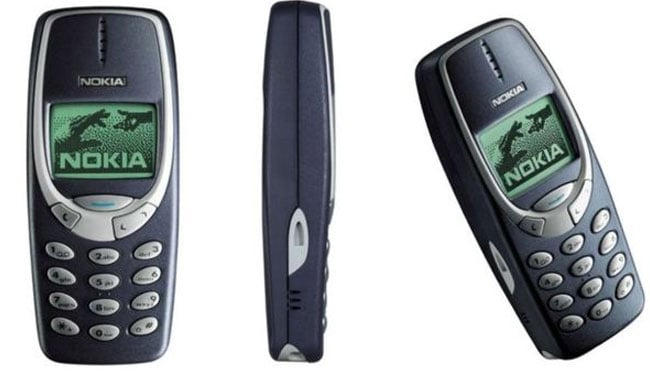Nokia 3310 relaunched: All you need to know about the new version
BARCELONA: Nokia 3310 has made its way back into the marketplace, this time with a new design and a month-long battery life, as well as the much relished game on the mobile phone, Snake.
The older version which was a stellar hit with Nokia users

The iconic phone was launched at the Mobile World Congress (MWC) 2017 that took place in Barcelona. This time around, the phone has been tweaked a bit to adjust to the evolving market and keep in touch with the new customer taste and fashion. Nokia 3310 handset now comes in a sleek design and in different bright colours. CEO of CEO of HMD stated during the ceremony that the new Nokia 3310 will have a battery life of 22 hours and will survive for a month on standby based on a single charge.

One can also now access the game that made Nokia 3310 a fan favourite when it first came out--Snake. Users can now access the game from the Facebook Messenger under the games tab. The phone can be charged with a micro-USB which means that you really don't have to carry the old Nokia pin charger with you and it even has a headphones jack in it, enabling you to enjoy music.And just so you know; the phone also has a camera at the back, with a removable cover as well as a screen which is larger than the older version.

Regularly accurate news leaker Evan Blass had confirmed the relaunch of the phone a couple of weeks ago.
You asked for it… we brought it back. The Nokia 3310 is reborn. #MWC17 pic.twitter.com/UZfHMHIZid
— Nokia Mobile (@nokiamobile) February 26, 2017
Read more: Out of sigh but not out of mind: Nokia 3310 to be relaunched?
-
Shanghai Fusion ‘Artificial Sun’ achieves groundbreaking results with plasma control record
-
Polar vortex ‘exceptional’ disruption: Rare shift signals extreme February winter
-
Netherlands repatriates 3500-year-old Egyptian sculpture looted during Arab Spring
-
Archaeologists recreate 3,500-year-old Egyptian perfumes for modern museums
-
Smartphones in orbit? NASA’s Crew-12 and Artemis II missions to use latest mobile tech
-
Rare deep-sea discovery: ‘School bus-size’ phantom jellyfish spotted in Argentina
-
NASA eyes March moon mission launch following test run setbacks
-
February offers 8 must-see sky events including rare eclipse and planet parade











